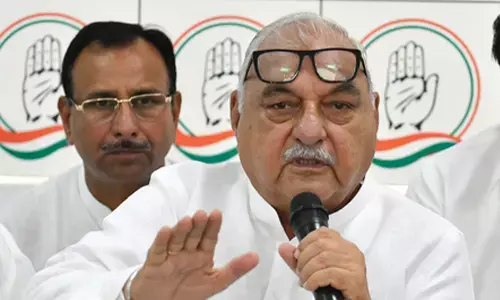Realign Your Portfolio Through Asset Allocation
 Realign Your Portfolio Through Asset Allocation
Realign Your Portfolio Through Asset AllocationThe one question I faced almost every day in the last couple of months has been on what’s next? I mean, what to expect from the markets or economy or the virus, etc
The one question I faced almost every day in the last couple of months has been on what's next? I mean, what to expect from the markets or economy or the virus, etc.
How many months would it take to recover or what kind of stimuli (fiscal, monetary or just liquidity) is required to get back to normalcy?
Though, I've no answers for any of these, one sure thing is that no one has an accurate answer as well. Groping in the dark, all of us resemble the blind men in the great fable trying to measure an elephant.
In the current crisis, there're some known unknowns i.e. the factors we know, but the effects are not completely understood. For instance, the proliferation of the virus, it's intensity and the extension of lockdowns.
These factors would eventually define the possible recovery, the shape of recovery and the time to recover. Of course, there're unknown unknowns i.e. what kind of crisis would the current recovery could ultimately lead to or how would the crisis have an impact on the way we get on with lives going forward, etc., all these are risks inherent.
Yes, markets won't remain static - they move up or/ and down, one day they might open gap-up to only end in negative and vice-versa. If one wants to find out the reasons, there could be some news, which sometimes is not even valid or wouldn't make sense for us believe has caused the market reaction, but that's how the markets work.
They get elated by the announcement of a stimulus forgetting that it's only a part-compensation for the loss and the reality is lot worse. It's said 'no news is bad news for the markets' that possibly explains the exuberance of the markets amid all the shutdown and economic contraction.
These are unprecedented times and none of us have witnessed any situation of this size and scale. There was no other instance in the recorded history where the governments across the world have simultaneously and voluntarily discouraged productivity as the economies remained in lockdown.
But human history is littered with many instances when a deadly outbreak threatened to wipeout the entire race, we've fought back with resilience. While the governments and central banks across the world have embarked on reducing the economic agony, the best of the minds in research have started to work for a remedy; this time too we might survive.
Concurrently, there will be a set of people who see a lot of pain and a very prolonged time for recovery if not a permanent damage to the world etc. It's anybody's guess of what happens in the future. As the forecasts move from optimism to pessimism, investors' emotions oscillate between greed and fear.
So, it's a predicament for the investor to let the storm settle, skies clear and as we get back to normal, start to invest or should one scout for opportunities and begin to average the current markets? Because, it's easy to be masked by the markets and very rarely would one perfect the timing of either moving in or moving out.
How should one approach to investing in these times or should one even consider investing at the first place? The answer, however, lies not with the markets, but us. When planning, we make certain assumptions, which are defined and precise while the real-world probabilities are inordinate and indeterminate.
Despite a number of variables included, a plan tends to become static while the reality remains dynamic. It's to be noted that while we worry about the present, investment is all about future. We tend to make investments with a view into the future and also for future goals, which is completely riddled with uncertainty. That's the paradox we have to live with.
Arguably, the most important factor to be considered for investment is the objective and the associated time frame. This would define the asset allocation to choose, hence would control the risk associated with the investment.
In the rush to make more returns we tend to ignore or blur the risk we're undergoing. Opting between the extreme paths, I would like to remain a realist, while answering the initial question.
It's high time we check our investment objectives, readjust the risk in the portfolio and realign the portfolio through asset allocation. That makes our plan as much receptive and as dynamic as the real world.
(The author is a co-founder of "Wealocity", a wealth management firm and could be reached at [email protected])








